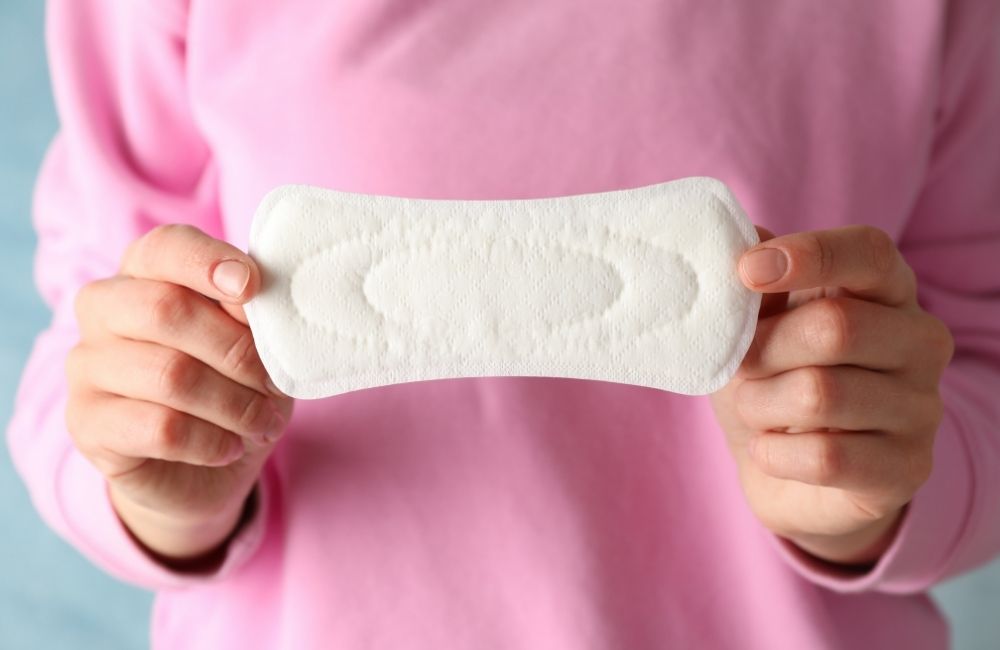Every once in a while, we often hear stories about women who became ill or even died from toxic shock syndrome or TSS.
This condition is often related to tampons or menstrual cups. There are so many myths revolving around toxic shock syndrome on the Internet. And today, we’re going to find out if sanitary pads are the safest or Toxic Shock Syndrome can still sleek in!

Contents
What is Toxic Shock Syndrome?
Toxic shock syndrome (TSS) is a rare but life-threatening complication caused by bacteria getting into the body and releasing harmful toxins.
It’s often caused by tampon use in women, but it can affect anyone, including men and children.
TSS symptoms can worsen quickly and can be fatal if not treated. But if it is diagnosed and treated early, most people will make a full recovery, usually within a couple of days to a week.
Symptoms of Toxic Shock Syndrome
The symptoms of TSS can start suddenly and get worse. The tell-tale symptoms include:
- A high body temperature
- flu-like symptoms, like headache, chills, body pain, a sore throat, and a cough
- a feeling of being sick
- diarrhea
- a widespread sunburn type of a rash
- the whites of the eyes and tongue turn bright red
- dizziness, tired
- Difficulty in breathing
- drowsiness
In some cases, you may have a wound on your skin from where the bacteria get into the body.
What causes it?
TSS is caused by a bacteria called Streptococcus or Staphylococcus. These bacteria normally reside without harming the skin on areas like the nose or mouth, but if it gets deeper into the body, it can release toxins that damage tissue and stop the organs from working.
- Using tampons– Only if you leave the tampon for a longer period than recommended or use “super-absorbent” tampons.
- Using female contraceptives, such as a contraceptive diaphragm or contraceptive cap.
- A wound such as a cut, burn, boil, insect bite, or a surgical wound.
- After childbirth
- TSS doesn’t spread from person to person. The body doesn’t develop immunity to it once you’ve had it so that you may get it more than once.
Can you get Toxic Shock Syndrome from a sanitary pad?
Thankfully, pads don’t cause toxic shock syndrome. However, they can still put you at risk for other infections if not changed at a reasonable time. You should change tampons every four to eight hours, and You should change pads every three to four hours if you wait too long or tend to forget to put yourself at risk for developing a UTI, vaginal infection, or a rash. I’m traditional comfortable with pads anyway!
How do I prevent TSS?
The following tips can help reduce the chances of TSS.
- Treat wounds and burns ASAP! Also, get medical help if you develop signs of an infection, such as increased pain, swelling, and redness.
- Always use a tampon with the lowest absorbency. Stay away from super-absorbent tampons!
- Alternate tampons with sanitary pads and don’t completely rely on tampons during your periods. If you use pads, opt for an organic sanitary pad.
- Wash your hands before and after inserting a tampon.
- Change tampons regularly – as often as described on the pack (mostly every four to eight hours)
- Never insert more than one tampon at a time (I’m not sure if anyone does it, if you do, then you need to stop!)
- When using a tampon at night, insert a new tampon before going to bed and change it in the morning.
- Whenever using female barrier contraception, follow the instructions on the pack.
- Avoid using tampons or female barrier contraception if you’ve had TSS before.
I hope this article answers all your queries regarding Toxic Shock Syndrome. Till then, happy periods!